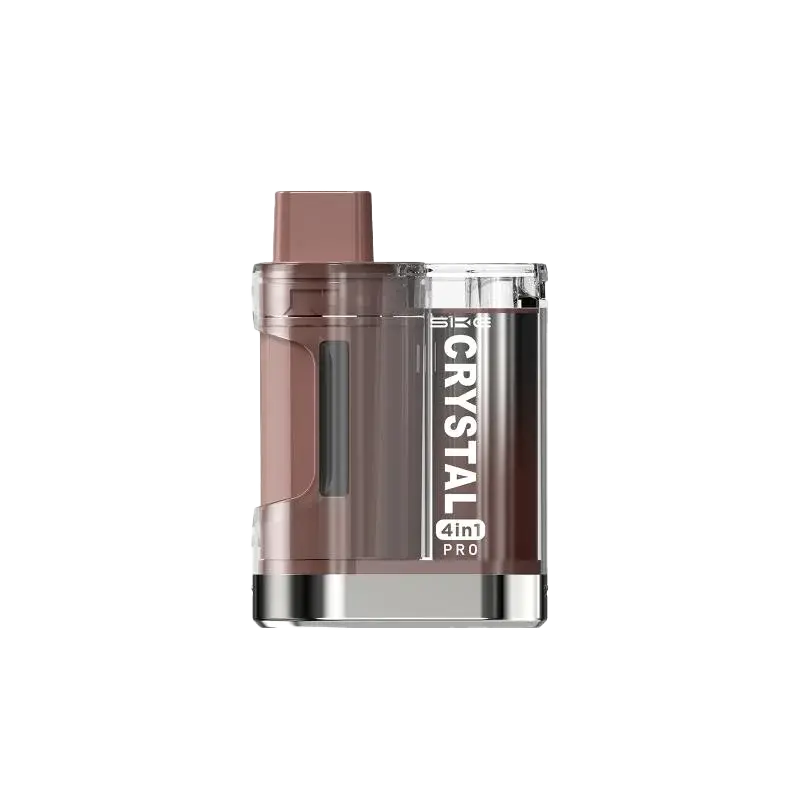Vape Juice Expiration: Fresh Flavor or Foul Fail?
9/18/2024, 4:57:54 PM 1830
Have you ever wondered if that bottle of vape juice sitting at the back of your drawer is still good to use? Vape juice expiration is something every vaper needs to consider, whether you're a daily cloud chaser or an occasional puff taker. So, let’s dive into the details on vape juice expiration.
Does Vape Juice Expire?
Yes, vape juice does expire. But don’t worry — your e-liquid isn’t going to spoil overnight.
Vape juice, or e-liquid, comprises a few primary ingredients: propylene glycol (PG), vegetable glycerin (VG), flavorings, and, in most cases, nicotine. Each of these components has its own shelf life, and when combined, they create a product that will eventually degrade over time.
Generally, most vape juices have a shelf life of 1 to 2 years from the date of manufacture, depending on their ingredients quality and storage conditions. Over time, the components in e-liquid start to degrade, leading to changes in color, taste, and consistency, signaling that the vape juice is no longer at its best. While expired vape juice isn't necessarily harmful, it may result in a poor vaping experience with diminished flavor, a weird aftertaste, and nicotine potency.
Does Nicotine Expire?
Yes, nicotine does expire, and it can happen sooner than you might think. As an organic compound, nicotine is naturally prone to breaking down over time. The primary reason nicotine expires is due to its inherent chemical properties and sensitivity to factors like light, heat, and air exposure.
Oxidation: The Main Culprit
What Is Oxidation? When nicotine is exposed to oxygen, oxidation begins, causing the nicotine to break down into different compounds that can significantly change the e-liquid's color, flavor, and potency. This chemical transformation may turn your once-clear or light-colored juice into a dark amber or brown liquid while the flavor becomes less smooth and more bitter or harsh over time.
Light Exposure: A Hidden Enemy
UV Rays and Degradation: Nicotine is highly sensitive to light, particularly ultraviolet (UV) rays. Exposure to direct sunlight or even strong artificial light can cause the nicotine in your vape juice to degrade more rapidly by providing the energy that accelerates the oxidation process, breaking down the nicotine faster than it would under normal conditions.
Heat: The Catalyst for Expiration
How Heat Accelerates Expiry: Heat acts as a catalyst, triggering molecules to move faster and speeding up chemical reactions like oxidation, which means the quicker breakdown of nicotine and other components in the vape juice. If your vape juice is stored in a warm environment, such as a car or a sunny windowsill, its shelf life could be significantly shortened.
Does Propylene Glycol Expire?
Yes, propylene glycol (PG) can expire, but it has a much longer shelf life than many other ingredients in vape juice. Propylene glycol is known for its stability and resistance to spoilage, which means it tends to last longer - up to 2-5 years under the right conditions. However, like all chemical compounds, it will eventually degrade because of oxidation and moisture absorption, affecting its quality and performance in vape juice.
When propylene glycol starts to break down, it may lose its effectiveness as a carrier for flavor and nicotine. You might notice that vape juice with expired PG becomes thinner in consistency and offers weaker vapor production. While it’s not likely to spoil in the way food or nicotine does, it can lead to a less satisfying vape session if losing its stability.
Does Vegetable Glycerin Expire?
Yes, vegetable glycerin (VG) does expire. While it's known for stability and long shelf life, typically lasting between two to six years if stored properly, VG will eventually break down owing to oxidation and its hygroscopic nature. When VG starts to degrade, you might notice changes in its texture and performance — becoming thicker, cloudier, or less effective at producing vapor.
Expired vegetable glycerin can negatively impact your vaping experience by decreasing vapor production, altering the consistency of the e-juice, and making it more difficult for your vaping device to wick properly while also causing the flavor to lose its vibrancy. While it’s unlikely to become harmful, vaping with expired VG can result in a subpar experience.
Does Vape Flavoring Expire?
Yes, vape flavoring does expire, while it may not be as obvious as other components. The flavorings used in e-liquids are typically food-grade compounds with a shelf life ranging from 1 to 2 years, depending on their chemical composition and how they’re stored. Unlike nicotine, which can oxidize and change color, vape flavorings may lose their vibrancy in more subtle ways.
Over time, flavor molecules can break down, causing the once vibrant flavors to become muted or unbalanced. For example, a fruity vape juice that's sweet and refreshing originally might take on a more bland, flat, or even strange aftertaste. Complex dessert flavors may lose their layers, leaving a flavor that feels one-dimensional or chemically off. Additionally, the rate at which flavorings degrade can vary based on their base ingredients, with citrus or fruity flavors tending to break down faster than richer, creamier, or more robust profiles.
In extreme cases, expired vape flavorings can develop a sour, bitter, or even burnt taste. If you’re noticing a significant shift in taste — like your once delicious vape tastes slightly off or completely different — your flavorings have likely expired.
What Does Expired Vape Juice Taste Like?
Expired vape juice usually tastes quite different from its fresh counterpart, and these changes are often unpleasant. If your vape juice has expired, you may notice a combination of the following taste changes:
1. Bitter or Harsh Taste
It's often due to the oxidation of nicotine, which can give the vape juice a peppery or acrid flavor. Instead of the smooth hit you're used to, an expired juice might feel harsh on the throat, causing irritation or discomfort.
2. Faded or Dull Flavor
It's a result of the degradation of flavorings over time. What was once a vibrant, fruity flavor might now taste faint or almost flavorless, lacking the depth and complexity it originally had.
3. Sour or Rancid Notes
Expired vape juice can sometimes develop unpleasant sour or rancid notes, especially in juices with sweet or creamy flavors, which are more prone to faster degradation. A sour taste indicates that the juice’s components, such as vegetable glycerin or flavorings, have started to break down or oxidize, resulting in a flavor profile that is far from enjoyable.
4. Chemical or Metallic Aftertaste
A more extreme sign of expiration is a sharp, chemical, or metallic aftertaste, often occurring when vape juice has been exposed to air, light, or heat for a prolonged period, leading to noticeable chemical changes. A metallic taste could also indicate contamination, which might happen if the vape juice is stored improperly or if the bottle is compromised.
5. Off-Smell Accompanying the Taste
You might notice a strange or stale odor when opening the bottle containing the expired vape juice, often accompanied by a noticeable change in taste, which is a good indication that the juice is no longer good to use.
How to Dispose of Expired E-Liquid?
Disposing of expired e-liquid should be done responsibly to avoid harming the environment. You can’t simply pour it down the drain or toss it in the trash, as the chemicals in vape juice, especially nicotine, can be hazardous if they contaminate water supplies or soil.
The best way to dispose of expired vape juice is to mix it with an absorbent material like cat litter, coffee grounds, or sawdust. Once the liquid is fully absorbed, place the mixture in a sealed plastic bag, and then throw it in the regular household trash.
Additionally, please dispose of empty bottles according to your local recycling guidelines. Most vape juice bottles are recyclable, so rinse them thoroughly with water and place them in the appropriate recycling bin. If your area has hazardous waste collection, you can also check whether they accept nicotine-containing products.
Understanding vape juice expiration is essential for a safe and enjoyable vaping experience. Most e-liquids will expire after 1 to 2 years, with elements like nicotine, propylene glycol, vegetable glycerin, and flavorings that may degrade over time, affecting flavor, potency, and vapor production. Proper storage in a cool, dark place can extend the lifespan of your vape juice, but once it expires, it’s important to dispose of it responsibly. Always assess your e-liquid’s taste, color, and consistency to keep fresh juice and avoid unpleasant surprises.
 United Kingdom
United Kingdom  Russia
Russia  Germany
Germany 

















